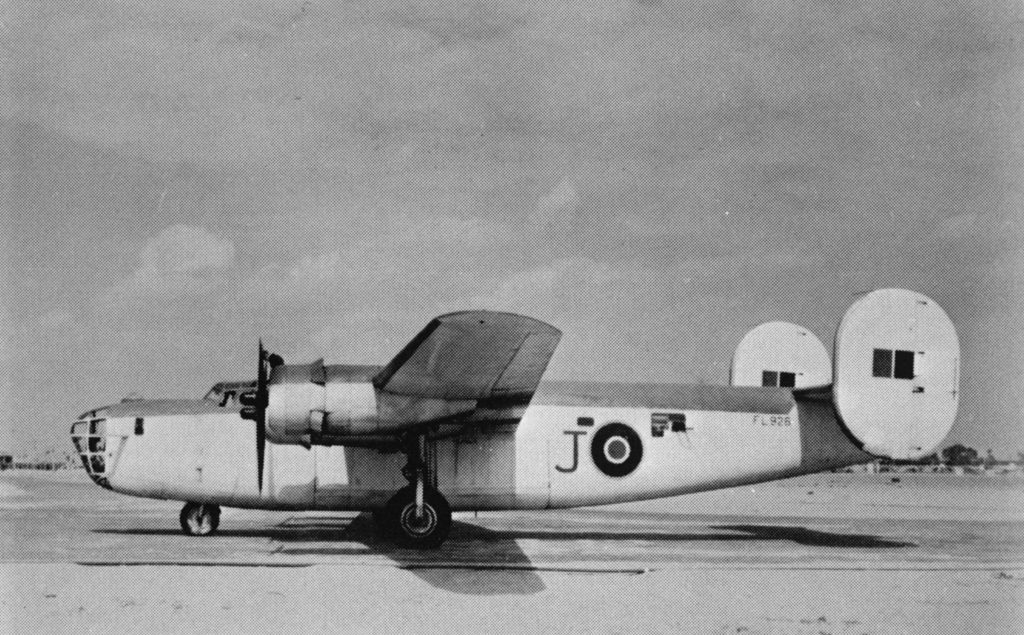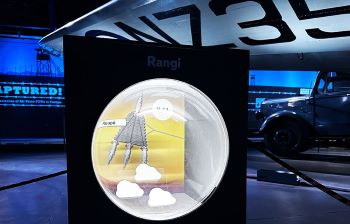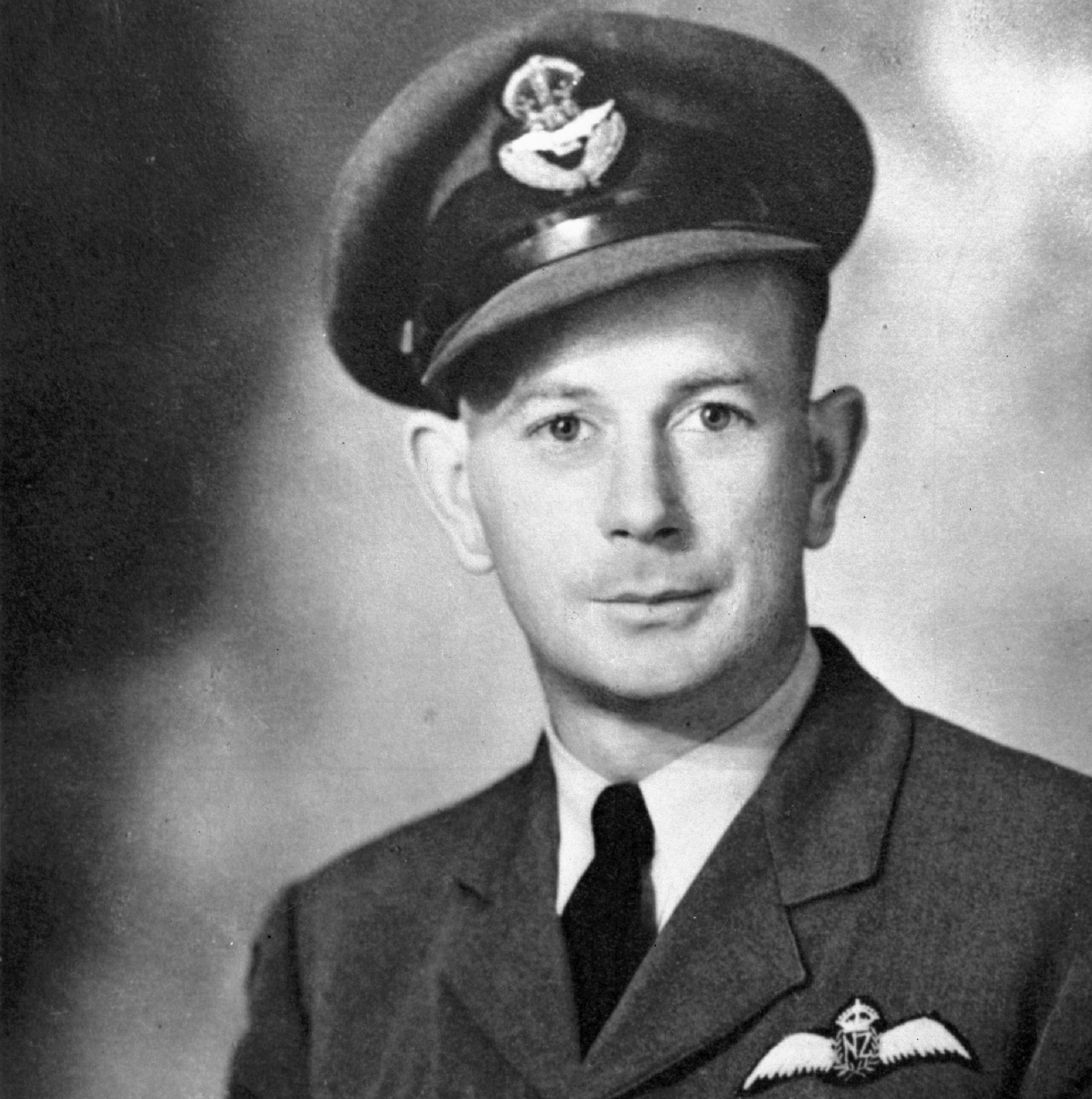Lloyd Trigg was an RNZAF pilot who earned our highest honour, the Victoria Cross, for an audacious attack on a German submarine in 1943.
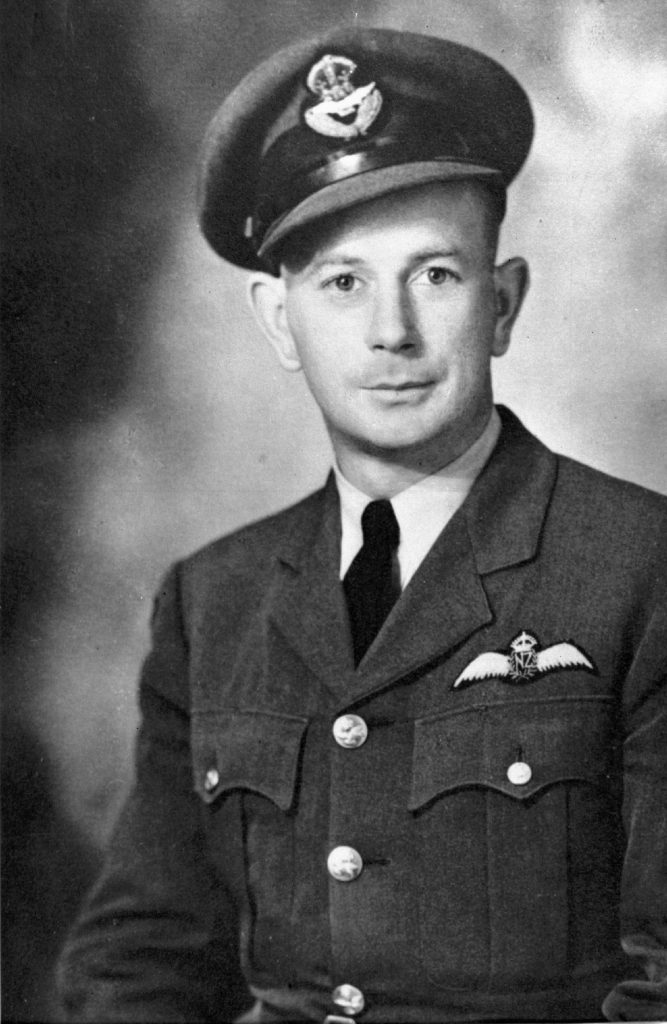
Lloyd Trigg was born in Houhora, north of Auckland, on 5 June 1914.
When World War Two broke out he was farming with his wife Nola in Northland and had two small sons. He volunteered for RNZAF service was selected for pilot training, and completed a course at Harewood, Christchurch, before embarking for Canada on 22 September 1941. He trained in Canada under the Empire Air Training Scheme and was awarded his pilot’s ‘wings’ on 16 January 1942.
In January 1943 Trigg was posted to No. 200 Squadron RAF in West Africa, where he flew Lockheed Hudson light bomber aircraft, patrolling the Atlantic seeking and destroying German U-boats. He was awarded a Distinguished Flying Cross for two attacks on enemy submarines in June 1943 while piloting Hudson aircraft, with his citation describing him as an officer with a fine operational career who had set a conspicuously good example of keenness to fly under all conditions.
By August 1943 No. 200 Squadron had been re-equipped with Consolidated B-24 Liberator aircraft which were well suited for long-range anti-submarine patrols and was operating from Rufisque in French West Africa, now Senegal.
On 11 August 1943, Trigg and his crew aboard Liberator BZ832/D were on patrol when a surfaced German submarine, U-468, was spotted. Trigg closed in for the attack, as the U-boat turned its two anti-aircraft cannons to Trigg’s aircraft. The U-boat scored several devastating hits to the Liberator, setting it on fire.
With the blaze spreading through his aircraft, Trigg continued his attack, dropping his depth charges with deadly accuracy from 50 feet above the sea, directly on top of the submarine.
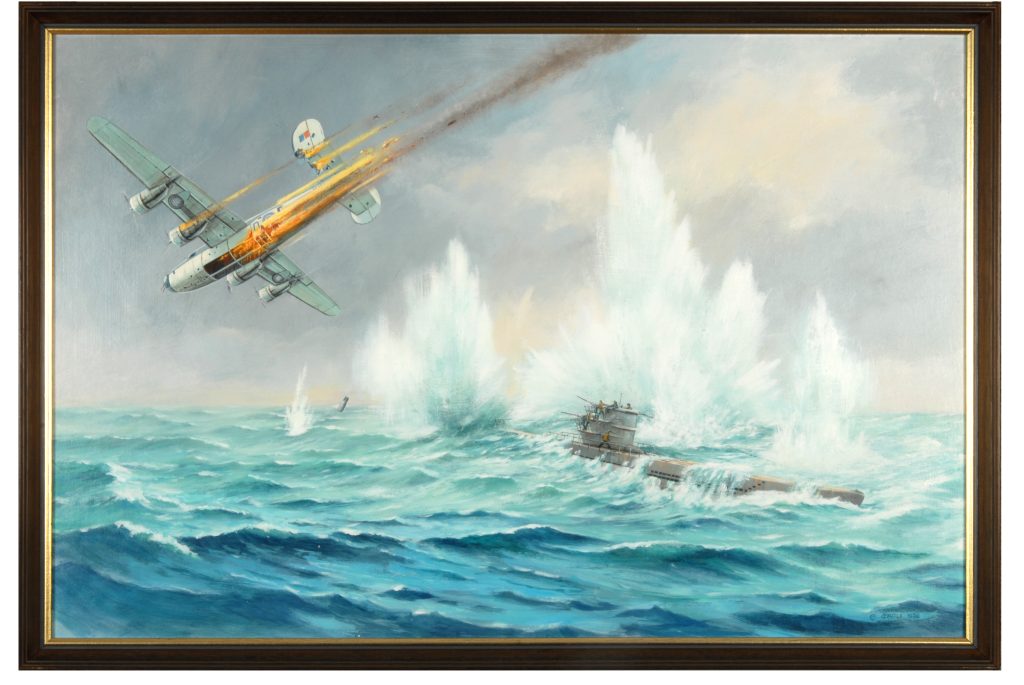
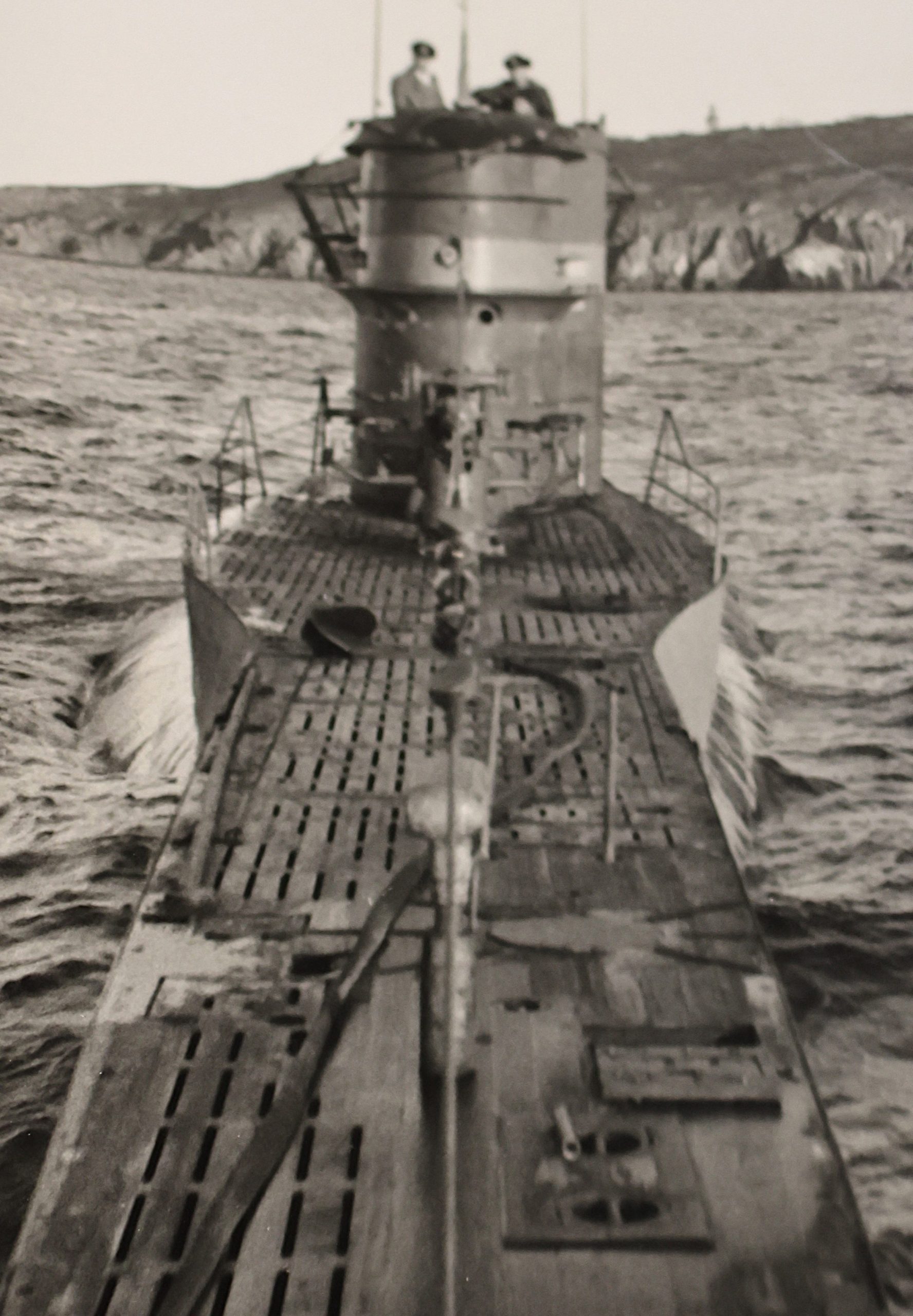
Trigg’s aircraft was crippled beyond saving, and it plunged into the sea a short distance from the U-boat, killing Trigg and the rest of his crew.
The U-boat was mortally wounded, and it sunk within 20 minutes. Seven of its crew members survived and were picked up by an Allied rescue party the next day, floating in a dinghy which had come from the crashed Liberator.
The captain of the U-boat was interrogated and provided an eyewitness account of Trigg’s attack, which resulted in the young New Zealander’s recommendation for a Victoria Cross.
He remains the only serviceman ever to be awarded the VC solely on evidence provided by the enemy.
Trigg’s posthumous VC was gazetted on 2 November 1943, and presented to his widow and sons by the Governor-General of New Zealand, Sir Cyril Newall, at their home in May 1944.
His citation described how Trigg could have broken off the attack but pressed on regardless.
It reads: He (Trigg) maintained his course in spite of the already precarious condition of his aircraft and executed a masterly attack.
Skimming over the U-boat at less than 50ft with the aircraft, fire entering his open bomb doors, Flying Officer Trigg dropped his bombs on and around the U-boat where they exploded with devastating effect. The Battle of the Atlantic has yielded many fine stories of air attacks on underwater craft, but Flying Officer Trigg’s exploit stands out as an epic of grim determination and high courage. His was the path of duty that leads to glory.’’
The crew included four other RNZAF personnel. Flying Officer Ivan Marinovich, Flight Sergeant Arthur Godfrey Bennett, Flight Sergeant Laurence James Frost and Flight Sergeant Terence John Soper all perished in the crash. The crew has no known grave but are commemorated on the Malta Memorial.
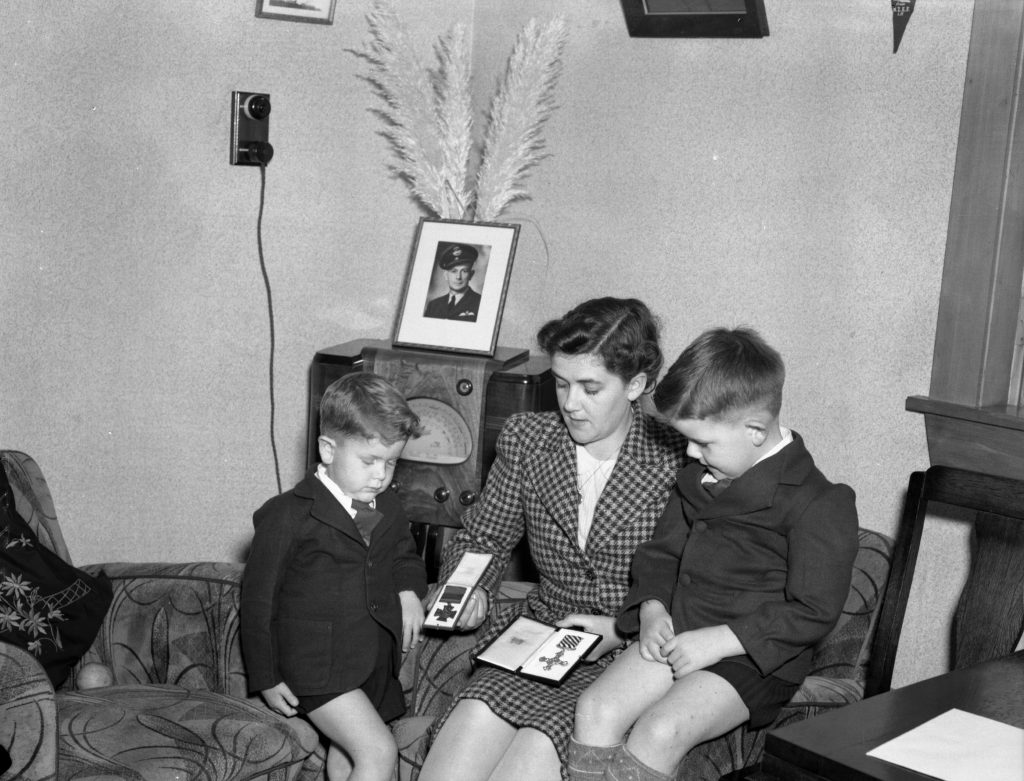
Flying Officer L. A. Trigg VC, DFC.
See Contact Magazine July 1944, page 57. Image: PR3333
